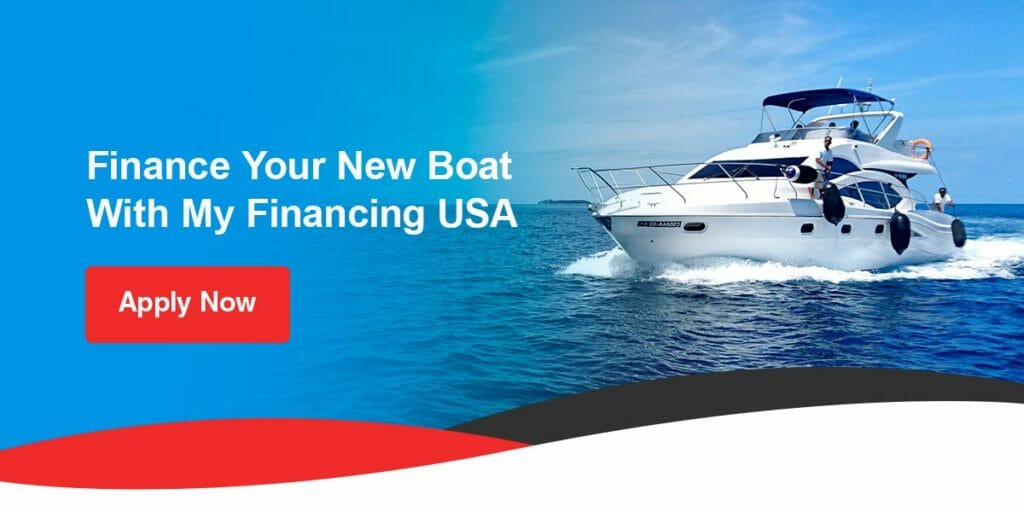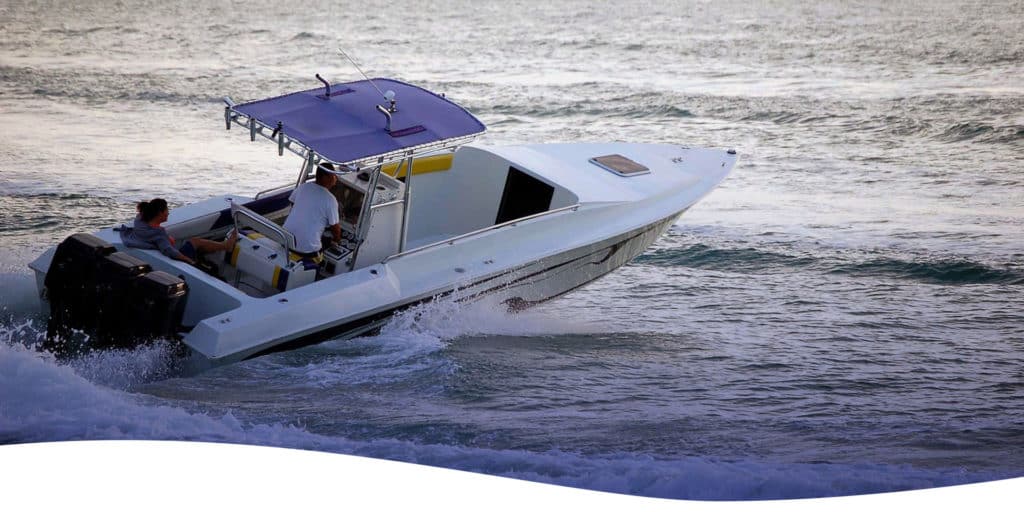Quick Navigation:
- The Importance of Being Prepared
- Boat Safety Rules and Regulations
- Recreational Boating and Fishing Tips
- Tips for Sailing With Your Dog
- Top Boating Safety Tips
- Boat Safety Gear Checklist
You can never be too prepared, especially when it comes to sailing on the high seas. While you may not be planning an international adventure across oceans, basic boating safety tips can be valuable even when you're barbequing on the dock. That's why we've created an in-depth guide of all the ways to stay safe when boating, from pet boat safety to fishing on the open water.
Whether you're refamiliarizing yourself with the proper protocol or about to purchase a brand new vessel, these tips for boating safety will show you how to be safe on a boat in any circumstance. When it comes to keeping your life and the lives of others protected, you can never be overly cautious. Here's how you can enjoy your watercraft while following the proper guidelines.
The Importance of Being Prepared
Boating is a fun and popular recreational activity, whether you're sailing on the ocean or coasting on a local lake. From the exciting thrill of water skiing to relaxing in the sun on the deck, spending time on your own boat can be a rejuvenating experience. But before you get caught up in the enjoyment of boating, it's crucial to learn how to be a safe boater.
You don't hear about boating accidents very often. While many catastrophes garner media attention, boat-related incidents don't often make the news. But just because you don't hear about them doesn't mean they don't happen. Thousands of boat-related injuries and hundreds of deaths result from boating accidents every year. The United States Coast Guard reported that boat accidents are on the rise. Between 2019 and 2020, boat accidents increased by 26.3%, with non-fatal injury victims jumping up by 24.7%.
As you can see, boating accidents are more common than you may think. Boating safety education reduces the risk of personal injury and property damage. After all, if you're going to put your time and money into a large investment, like a boat, then you want to take every precaution to make sure you and your watercraft are protected. Boating safety rules for recreational boats also ensure that other boaters, swimmers, crewmembers and officials are safe as well.
That's why it's vital to master the basic rules of boating safety before you set out on the water. You can't take any chances when it comes to venturing on your vessel.
Boat Safety Rules and Regulations
Thirty-six states have some form of education requirement for individuals who wish to operate a boat. This may seem like a significant amount of work if you're new to boating, but it makes complete sense. To drive a car or operate a forklift, you need to pass a test and attain a license. While boating safety education requirements vary from one state to another, there are common guidelines across the board. Here are standard federal rules and regulations required by the United States Coast Guard.
Equipment Requirements
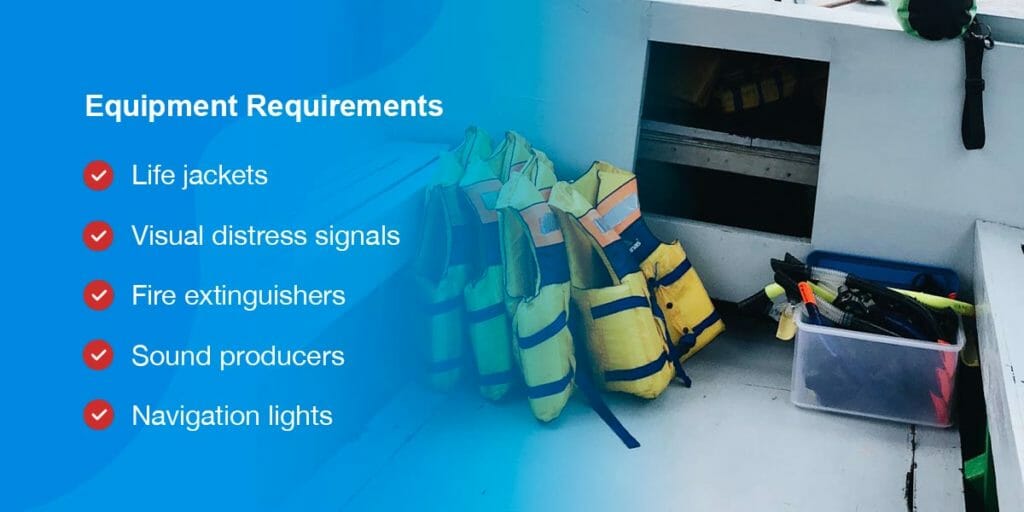
Keep in mind that there are exceptions and specific necessities for most of these federal equipment guidelines, depending on your boat type, features and location. Regardless, these are the universal boating safety rules for equipment on board:
- Life jackets: All recreational watercraft must provide one wearable life jacket for every person on the boat. Vessels 16 feet and larger must also provide a throwable device. All jackets must be Coast Guard approved, in good condition, stored properly, the appropriate size for each wearer and easily accessible. In addition, only persons who are 16 years or older can wear inflatable jackets.
- Visual distress signals: All vehicles operating within the United States and territorial seas and waters connected to a waterway less than 2 miles wide must have a functioning Coast Guard-endorsed visual distress signal. However, vessels smaller than 16 feet in length, part of an event or manually propelled are only required to display them at night.
- Fire extinguishers: All boats susceptible to fire hazards from the engine or fuel system must carry a Coast Guard-approved marine fire extinguisher. There are several types of fire extinguishers, as each one is purposefully made to accommodate the kind of fire it is designed to extinguish. Extinguishers are also classified by the type of dousing agent they contain.
- Sound producers: When meeting, crossing or overtaking another vessel, a recreational watercraft must sound a signal. Sound signals are also required when visibility is poor and while at anchor. Approved devices include bells, horns and whistles.
- Navigation lights: Watercrafts must display navigation lights during daylight hours and times of limited visibility. However, there are different lighting requirements for the various types of boats, depending on size and operational system.
Operating Procedures
The basic laws of operating a vessel are referred to as "the rules of the road." As long as boaters follow the rules, accidents are almost entirely avoidable. These rules are categorized into two parts: inland and international procedures. Inland regulations apply to boats operating within U.S. borders, while international guidelines apply to vessels outside of the line of demarcation.
Regardless of where you're boating, some standard operation rules apply to all watercraft. These include posting a lookout to watch for potential dangers, maintaining a safe speed and avoiding collision with other vessels.
One of the most crucial tools for navigating the water safely is having a nautical chart on hand. Different navigational systems are available, and GPS receivers are a common option. However, nautical charts can show you the outline of the coast, water depths and hazards, whereas a GPS only shows you longitude and latitude. Remember, nautical charts are constantly being updated based on natural and artificial land and sea changes.
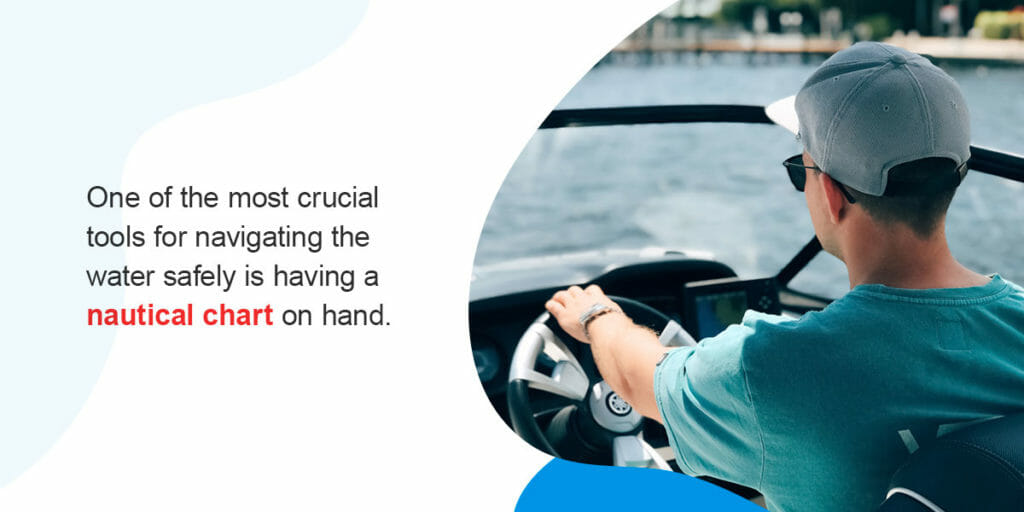
Recreational Boating and Fishing Tips
Fishing is a common pastime that millions of people around the world enjoy. But any activity near or on the water comes with its own risks. These fishing boat safety tips will help you navigate the most common and unpredictable situations, from pontoon boat safety tips to what to wear while casting the line.
1. Inspect the Water Before You Venture Out
The natural environment in any fishing spot, whether lakeside or in the open ocean, is susceptible to change without any notice. While the weather may be sunny and calm all week, you never know when a storm may roll in or when there are sudden disturbances in the water. Besides, you don't want to wake up early and get ready for a day of fishing only for changes in the weather to send you home.
2. Always Bring Extra Safety Gear
This may sound like common sense, but when you're in a rush to go fishing, it's easy to leave even your basic safety gear behind. Accidents happen all the time on the water, so you can never be too prepared. Your extra gear should include drinking water, flashlights, maps, a marine radio, a portable cell phone charger and your cell phone.
Many people see fishing as a solo activity and often turn their phones off or on silent to make sure they aren't bothered. However, it would be best if you always kept your cell phone turned on with your data and location-enabled so you have access to help in an emergency.
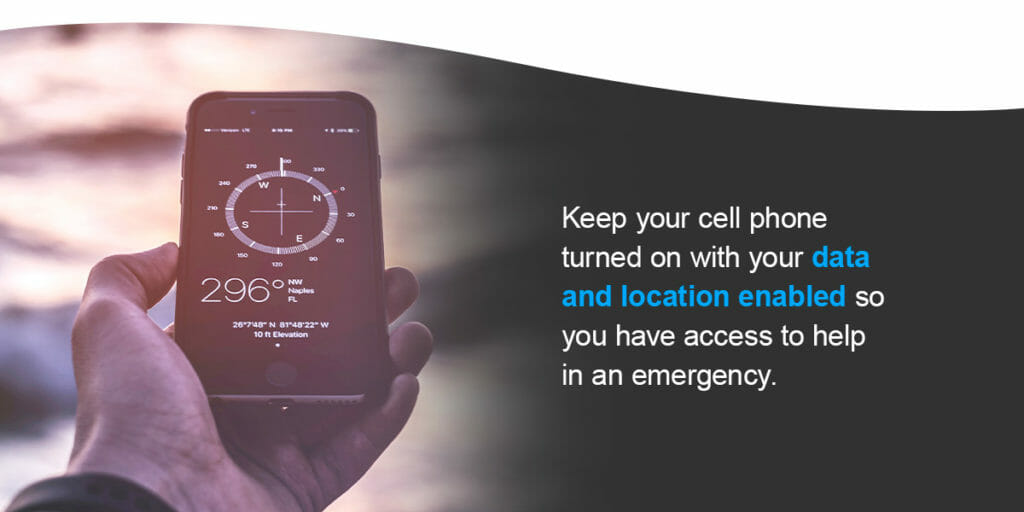
3. Dress Appropriately According to the Weather and Water Conditions
It should go without saying that you should always wear a life jacket when fishing on a boat. Additionally, you should also wear fishing clothes. Inadequate clothing can impact your fishing experience, as fishing clothes are specifically designed for the sport.
If you're fishing in the winter, you need to wear waterproof and windproof layers. Even if you don't plan on taking a dip in the water, some types of boats can splash water onto the deck and get your clothes wet. While you should use sun protection year-round, a hat, sunglasses and sunscreen are especially important in the summer.
But most critically, no matter when or where you're fishing on a boat, you must wear appropriate footwear. Boat and dock shoes keep your feet dry and prevent slipping on wet surfaces. You should always keep your shoes on, as rocks, foreign objects, litter and stray hooks could cause harm.
4. Have a Float Plan Ready to Go
Among the top boat fishing safety tips is to have a float plan. This goes for boaters in general, as well as anglers. If you're unfamiliar with the phrase, a "float plan" is an accessible and easy-to-find note detailing where you're boating, who you're going with, when you're expecting to be back, what your vehicle, boat and trailer look like and where you parked.
You want the details to be as specific as possible in case you stay out longer than planned and the authorities need to be called. Remember to keep your friends and family updated if you make any schedule changes.
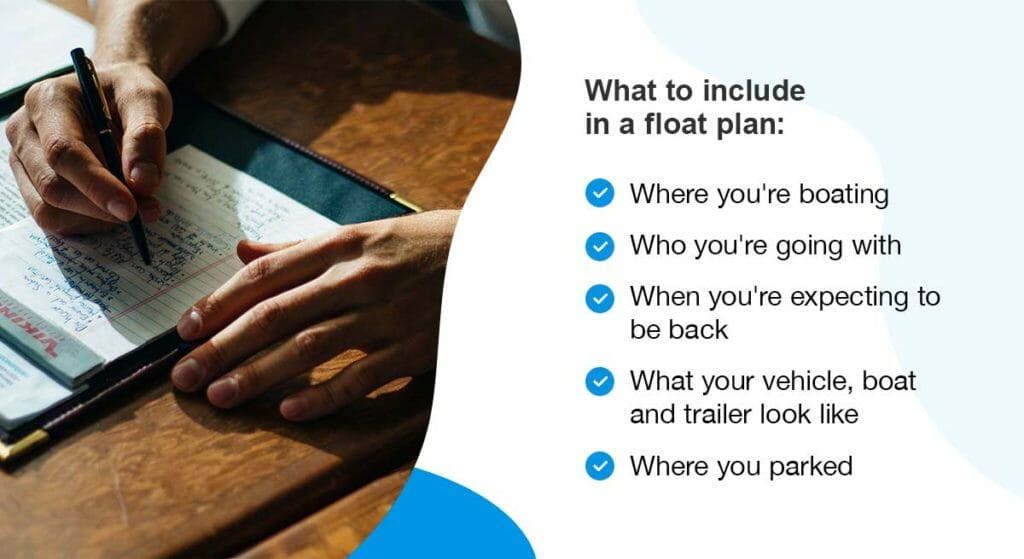
5. Don't Go Fishing Alone
For lake boating safety tips and open water protection, you can't beat the recommendation of never going it alone. Even if you have filed a float plan and wear your life jacket, it's still best to fish with a buddy. If you do decide to go solo, take the following precautions:
- Use a clip-on engine kill switch: An emergency engine shut-off lanyard will power off your motor when you travel more than a few yards away.
- Have a boarding ladder ready: Even the best swimmers can quickly tire out in the water. Having a boarding ladder off the side of your boat will help you climb back in and can be life-saving.
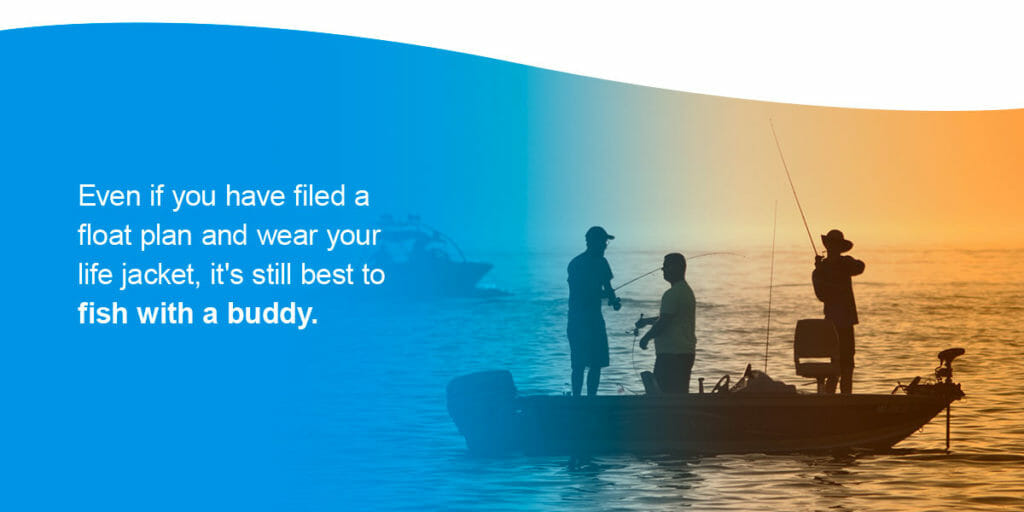
6. Equip Your Pontoon Boat
Most pontoons are not designed for fishing, although they are comfortable and stylish vessels. If you plan to take your pontoon for a fishing trip, follow these pontoon boat fishing safety tips:
- Invest in equipment: If you want to use your pontoon for fishing and cruising, invest in one built for both activities. If you already have a recreational pontoon boat, you can purchase the accessories required to make it fit for fishing.
- Only fish in calm waters: Pontoons are built to float over calm waters, not over waves. Although most can function just fine in choppy water, the decks will easily get washed over during big waves.
- Have a repair kit ready: If you're fishing on an inflatable pontoon boat, make sure you have a repair kit and hand pump prepared in case of an emergency. A repair kit only costs a few dollars and can quickly mend punctures in your boat, while a pump will get your pontoon going again.
Tips for Sailing With Your Dog
Boating in the summer is a refreshing adventure. The wind blowing through your hair and mist refreshing your skin is the perfect way to cool off while enjoying the warm weather. And who better to share it with than your dog? Dogs love going for walks and car rides, so it's no surprise that many of them love boating just as much as you do! Of course, pet boating safety comes with its own set of guidelines and precautions.
Pet safety on boats is crucial for a fun and enjoyable time on the water for you and your dog.
Invest in a Life Jacket
Pet safety on boats and watercraft starts with a life jacket. While most dogs are excellent swimmers, they can still experience fatigue and have trouble maneuvering in the water. Canine life jackets can be found online, in boating stores and even in pet stores. Make sure that your dog's life jacket is the correct size and fits securely around their torso.
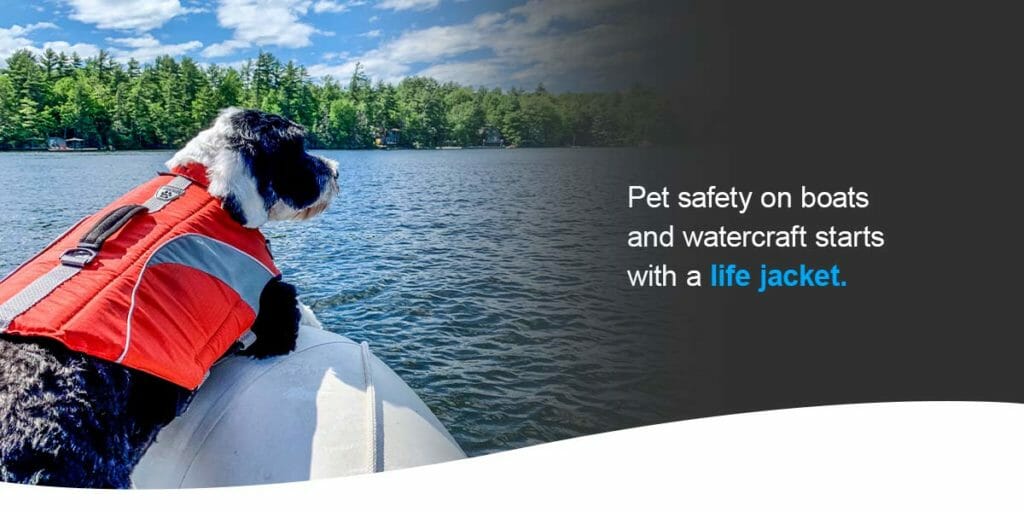
Have Clean Water and Food on Hand
Please do not encourage your dog to drink water from the ocean or lake. Even freshwater lakes can hold pollution and contaminants from other vessels and contain organisms that can harm your furry friend. It's best to bring a gallon of fresh drinking water with you when you're sailing with your dog and food to give them strength and energy after swimming.
Know What To Do If Your Dog Goes Overboard
Sometimes dogs can get so excited that they just jump into the water. Other times, accidents can happen, and your pet can fall overboard. Regardless, you need a plan to get them back on the boat quickly and safely.
Some pet owners make the mistake of jumping into the water after their dog. However, this can be very unsafe and lead your dog to panic and thrash around. The correct way to handle this type of situation is to circle back to your dog, then turn off the engine when you're close enough to them. Call your dog over to the boat and lift them using the handles on the life jacket or by wrapping your arms around their torso.
Plan for Plenty of Bathroom Breaks
Any house-trained pup knows not to use the floor as their personal bathroom. But when you're out on the water and your dog needs to relieve themselves, you need a plan of action. Some boaters rely on puppy training pads, while others purchase Astroturf so their dogs are comfortable going to the bathroom on a boat.
But not all dogs are able or ready to do their business on a boat. If this is the case for your dog, plan for plenty of bathroom breaks on land. Make sure you bring a leash so they don't run off when you get back on land.
Top Boating Safety Tips
When the warm weather rolls in, all you want to do is jump aboard and cruise along the water. Boating can be a stimulating and therapeutic activity. Whether you plan on spending the majority of your free time stationed at the dock, fishing or just sitting in the sun with friends, these summer boat safety tips and passenger rules will undoubtedly come in handy.
1. Learn How to Swim
In a time of need, doggy paddling will only carry you so far. In an actual emergency, knowing how to swim can save your life or someone else's. When you're on the water, you're taking on a significant amount of responsibility, especially when you're carrying passengers or a pet. It may take some time to learn to swim, but the investment is well worth it.
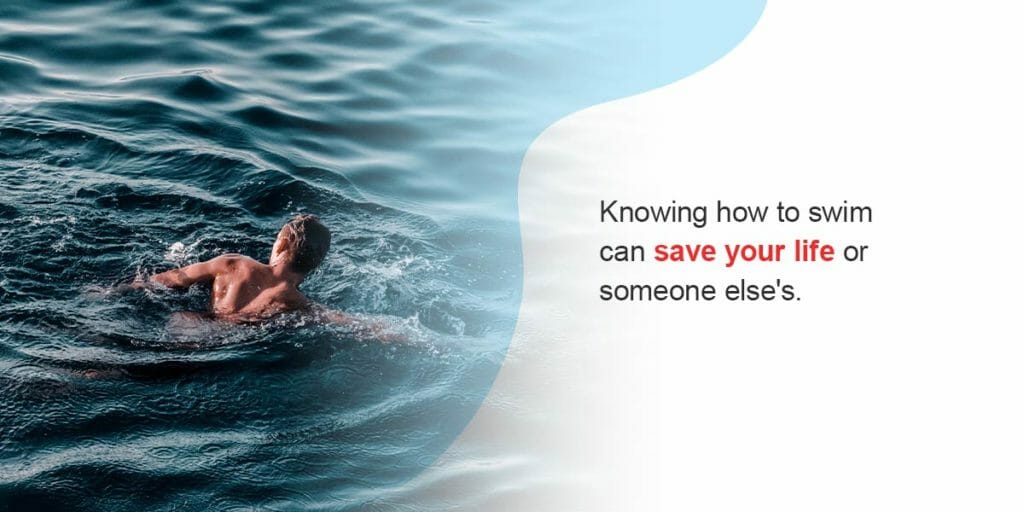
2. Keep It Neat and Tidy
More mishaps happen when your boat is dirty or slippery. It's best to keep your boat shipshape by thoroughly cleaning it before departing from your latest boating adventure and when you're not using it. Along with sweeping the surfaces, your cleaning process should include checking all of the equipment to make sure it is in working order and that your tools and gear are accounted for.
3. Keep Your Passengers Safe and Accountable
Boat passenger safety rules keep your friends and family safe and guarantee that everyone on board and that you pass on the water will have a good and safe time. Here are our top boat passenger safety tips for your crew and riders:
- Don't drink and ride: Consuming alcohol when boating is a considerable risk that can lead to injury and death. Recreational boating safety tips are a great place to start when exercising cautionary procedures. But taking the necessary steps to avoid alcohol, or at the very least appointing a "sober sailor," is your best course of action.
- Check-in with them: One of the most vital summer boating safety tips is checking in on your passengers' health throughout the trip. Extended subjection to wind, sun glare, noise and vibration can cause disorientation, nausea and malaise. Stay on the lookout for signs of unease and fatigue, and take a break from boating whenever necessary.
- Never run: When it comes to boat dock safety tips, the most important rule is always to walk, never run. Docks and decks both get slippery, so enforcing this rule will keep you and your passengers from slipping and falling.
- Give a full tour of emergency gear: Boat safety begins with passengers knowing what to do in an emergency. The top safety tips for boating on the sea and lakes include showing your riders where the first aid kits and floating devices are and ensuring they know how to access the boarding ladder and cut the engine.
Boat Safety Gear Checklist
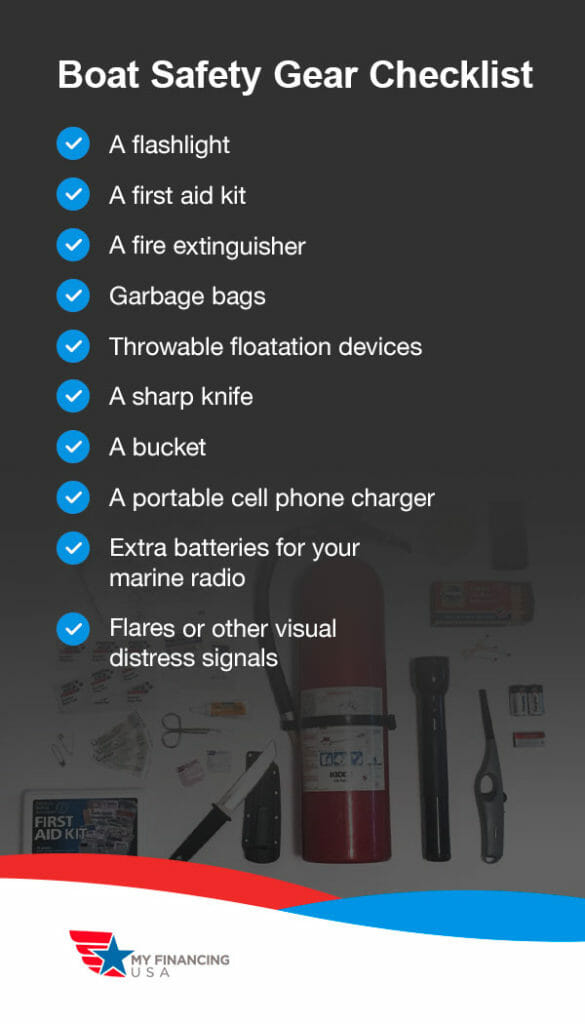
Never leave the dock without your gear! Here is a complete boat safety checklist of everything you need to pack for your day of boating:
- A flashlight
- A first aid kit
- A fire extinguisher
- Garbage bags
- Throwable floatation devices
- A sharp knife
- A bucket
- A portable cell phone charger
- Extra batteries for your marine radio
- Flares or other visual distress signals
Find a Boat for All of Your Needs With My Financing USA
My Financing USA allows you to enjoy the benefits of owning a boat without taking a significant financial hit with upfront costs. Our staff of experts is ready and available to help you get the boat of your dreams without compromising your time, savings or credit. All it takes is filling out a quick application, and our friendly staff will contact you for a free consultation.
Don't let over-worded sales pitches fool you. We show you just how easy it is to finance your new boat and find the right loan option for you. We offer you all the information upfront and put in the work for you, so there's zero confusion. With our help, you'll be coasting the waves in no time.
Learn more about our boat loans today and apply online for financing.


